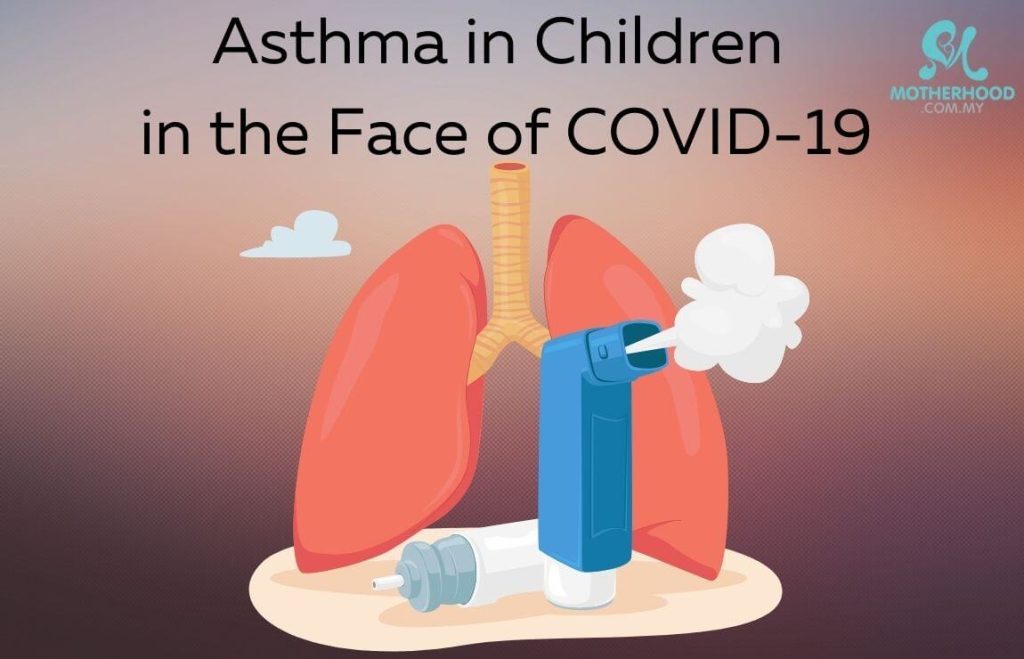Asthma is a disease that affects the airways. According to Asthma Malaysia:
Asthma affects almost a quarter of all children in Malaysia and up to 15% of adults.
That’s a rather high number for children in Malaysia, and as such, many parents may be concerned about their children having asthma attacks. Especially now with the COVID-19 pandemic going on and young children below the age of five who will not be eligible for any vaccination, how does this affect children with asthma?
Let’s find out the facts from Dr Norzila Mohamed Zainudin, who is a Consultant Paediatrician & Paediatric Respiratory Physician at Sunway Medical Centre, Sunway City.
#1: At what age does childhood asthma usually occur?
The diagnosis of asthma in children below five years old can be challenging. However, in younger children, we need to consider other diagnoses, because the disease can be overlapping with other respiratory diseases that present as recurrent cough and wheeze.
#2: Does asthma run in the family?
Yes. Asthma is a genetic disease and is likely to have asthma if there is a strong family history, especially if the mother is asthmatic.
#3: Are children born with it or does it develop?
The disease can be expressed when the child is exposed to triggers such as cigarette smoke, dust, house dust mite, etc.
#4: What are the signs of asthma in a child?
Here are some of the things to watch out for:
- Recurrent cough especially when playing, at night, having a cold and crying
- Cough worsens with a viral infection
- Cough especially in the night time and during bedtime
- Fast breathing
- Wheezing or whistling sound when breathing in and out
- Shortness of breath
#5: Does childhood asthma go away?
Most children can outgrow their asthma at school-going age and become asymptomatic. This means that there are no asthma symptoms and do not require any medication.
#6: What are the common triggers of asthma in children?
The usual triggers are:
- Common cold – viral infection
- Exposure to pollutants such as tobacco smoke
- Allergies to house dust mite, pet dander, pollen or mould
- Change in weather, a cold. Sometimes, no apparent trigger
#7: How is asthma being treated in children?
Asthmatic children are prescribed reliever medications to relieve acute symptoms when there is an acute attack such as cough, wheezing or breathlessness. It is not taken when the child is well with no acute symptoms.
#8: How do we manage a child with asthma?
Here are some ways used to manage asthma:
- Preventive medication: inhaled corticosteroid inhaler to suppress or treat the underlying inflammation for a period of time, between 3 to 6 months and stopped when the patient remains well but still requires monitoring and follow-ups.
- Leukotriene receptor antagonist in the form of an oral tablet. Can be considered for mild asthma.
- Combination inhaled steroid + long-acting betas agonists for severe asthma not controlled on inhaled steroid alone.
#9: Is there any way to prevent asthma in babies/children?
By having some environmental control in place to reduce environmental triggers as much as possible.
#10: What are the potential health risks of living with asthma?
One of the risks is to anticipate acute asthma attacks of non-compliant to the medication, and control of the environment.
Asthma & COVID-19
#11: How do we tell the difference of symptoms between an asthma attack and COVID-19?
Study showed that there is no evidence that asthma is a risk factor contributing to the COVID-19 infection or severity of the disease. However, studies had found that good asthma management can reduce the risk of a severe asthma attack during the pandemic.
#12: What is the impact of an asthmatic child getting COVID-19?
Due to the lockdown, the rate of paediatric asthma admission has dropped. The implemented lockdowns have reduced the transmission of viral disease, as well as improvement of air quality, which has reduced exacerbation.
#13: Will an asthmatic child be at higher risk of any severe illness from COVID-19?
One large multinational cohort study involving a thousand childhood asthmatics showed that asthma did not appear to be a risk factor for severe COVID-19 infection. Baseline asthma severity was not associated with a higher risk of COVID-19 infection.
Based on the available literature, whether asthma could be a protective condition against COVID-19 infection in children is still not clear. The Global Initiative for Asthma (GINA) recommends that children should continue their treatment to prevent asthma exacerbations due to COVID-19 infection.
Source: Dr Norzila Mohamed Zainudin, Consultant Paediatrician & Paediatric Respiratory Physician at Sunway Medical Centre, Sunway City
Disclaimer: The information provided in this article is for informational purposes only and should not be considered as medical advice from Motherhood. For any health-related concerns, it is advisable to consult with a qualified healthcare professional or medical practitioner.
For more insightful stories and fun recipes, stay tuned to Motherhood Story!
